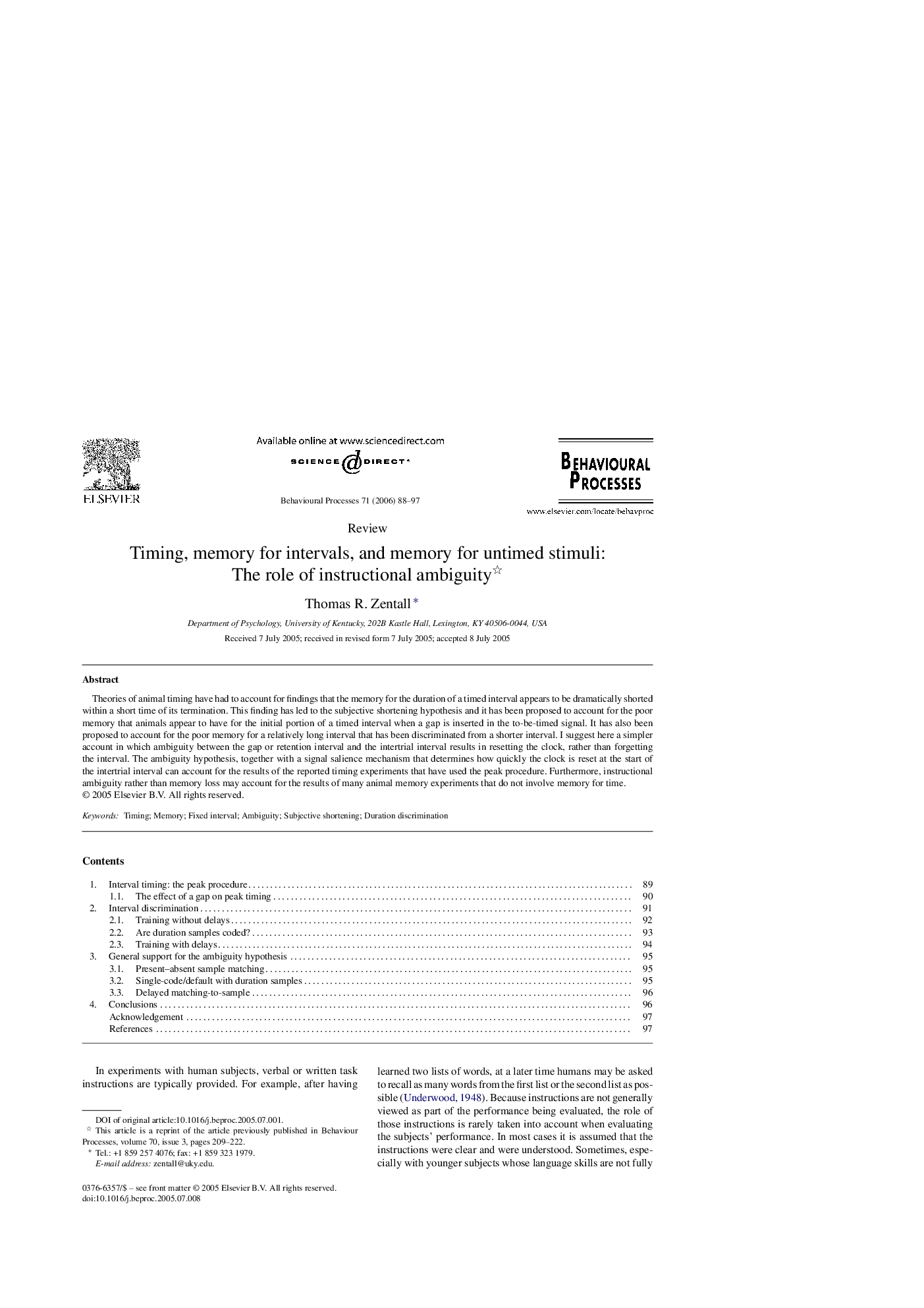| کد مقاله | کد نشریه | سال انتشار | مقاله انگلیسی | نسخه تمام متن |
|---|---|---|---|---|
| 2427867 | 1553190 | 2006 | 10 صفحه PDF | دانلود رایگان |
عنوان انگلیسی مقاله ISI
Timing, memory for intervals, and memory for untimed stimuli: The role of instructional ambiguity
دانلود مقاله + سفارش ترجمه
دانلود مقاله ISI انگلیسی
رایگان برای ایرانیان
کلمات کلیدی
موضوعات مرتبط
علوم زیستی و بیوفناوری
علوم کشاورزی و بیولوژیک
علوم دامی و جانورشناسی
پیش نمایش صفحه اول مقاله

چکیده انگلیسی
Theories of animal timing have had to account for findings that the memory for the duration of a timed interval appears to be dramatically shorted within a short time of its termination. This finding has led to the subjective shortening hypothesis and it has been proposed to account for the poor memory that animals appear to have for the initial portion of a timed interval when a gap is inserted in the to-be-timed signal. It has also been proposed to account for the poor memory for a relatively long interval that has been discriminated from a shorter interval. I suggest here a simpler account in which ambiguity between the gap or retention interval and the intertrial interval results in resetting the clock, rather than forgetting the interval. The ambiguity hypothesis, together with a signal salience mechanism that determines how quickly the clock is reset at the start of the intertrial interval can account for the results of the reported timing experiments that have used the peak procedure. Furthermore, instructional ambiguity rather than memory loss may account for the results of many animal memory experiments that do not involve memory for time.
ناشر
Database: Elsevier - ScienceDirect (ساینس دایرکت)
Journal: Behavioural Processes - Volume 71, Issues 2â3, 28 February 2006, Pages 88-97
Journal: Behavioural Processes - Volume 71, Issues 2â3, 28 February 2006, Pages 88-97
نویسندگان
Thomas R. Zentall,